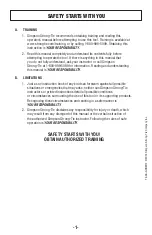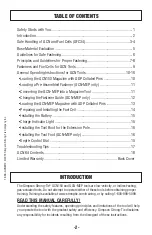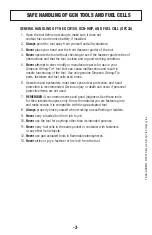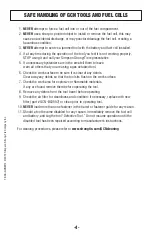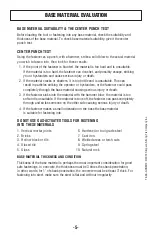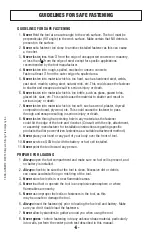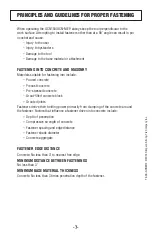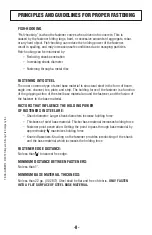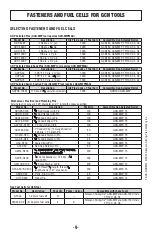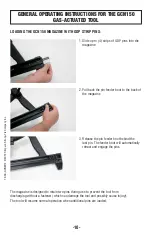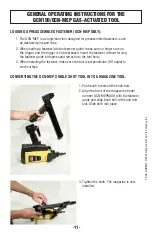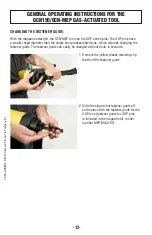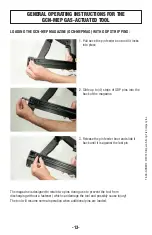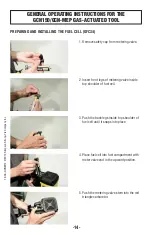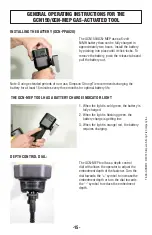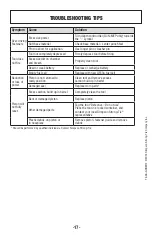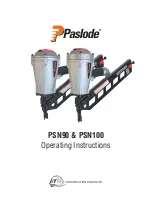
T-SAS-GCNM12 ©
2012 Simpson Strong
-T
ie Company Inc.
-5-
BASE MATERIAL EvALUATION
BASE MATERIAL SUITABILITY & THE CENTER PUNCH TEST
Before loading the tool or fastening into any base material, check the suitability and
thickness of the base material. To check base material suitability, give it the center
punch test.
CENTER PUNCH TEST
Using the fastener as a punch, with a hammer, strike a solid blow to the actual material
you wish to fasten into, then look for these results:
1. If the point of the fastener is blunted, the material is too hard and is unsuitable.
If the material is too hard, the fastener can ricochet, and possibly escape, striking
you or bystanders and cause serious injury or death.
2. If the material cracks or shatters, it is too brittle and is unsuitable. This can
result in particles striking the operator or bystanders, or the fastener could pass
completely through the base material causing serious injury or death.
3. If the fastener sinks into the material with the hammer blow, the material is too
soft and is unsuitable. If the material is too soft, the fastener can pass completely
through and strike someone on the other side causing serious injury or death.
4. If the fastener makes a small indentation in the base the base material
is suitable for fastening into.
DO NOT USE GAS-ACTUATED TOOLS FOR FASTENING
INTO THESE MATERIALS
1. Vertical mortar joints
6. Hardened or tool grade steel
2. Bricks
7. Cast iron
3. Hollow block or tile
8. Welded areas or torch cuts
4. Glazed tile
9. Spring steel
5. Glass
10. Natural rock
BASE MATERIAL THICKNESS AND CONDITION
Thickness of the base material is perhaps the most important consideration for good
safe fastenings. In concrete, the thickness must be 3 times the shank penetration;
in other words, for 1" of shank penetration, the concrete must be at least 3" thick. For
fastening into steel, make sure the steel is flat and without irregularity.


